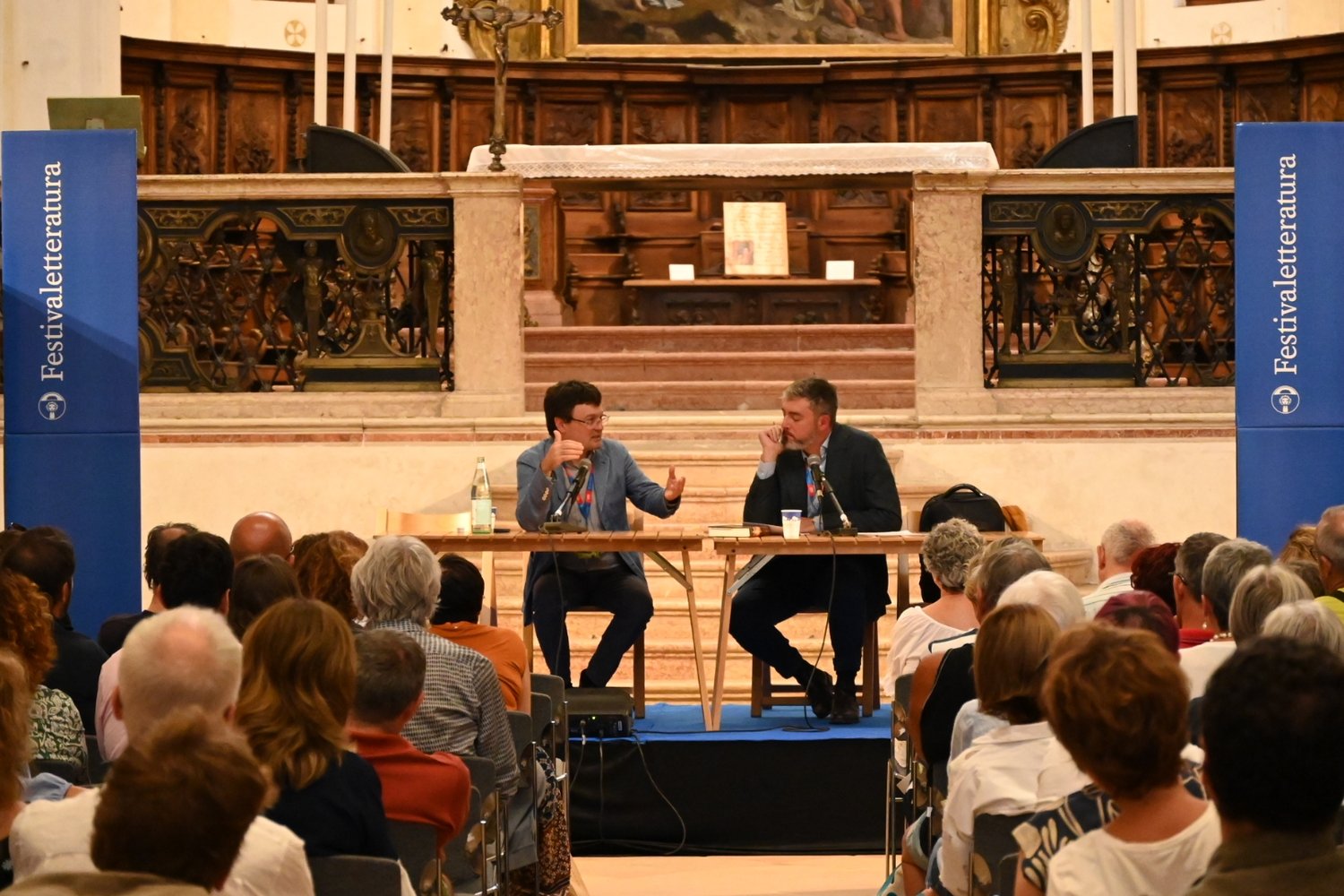



Money Talks, We Should Listen
The colour of Mantova in the early evening is gold. The sun coats all the warm tones of the city in a buttery light. Gold is also the focal point of this event. Or rater, wealth, who has it and who doesn’t.
Guido Alfani explores this notion in conversation with Giovanni Zagni inside the very literal wealth of the Basilica Palatina. Alfani opens by dissecting one of the assumptions native to economics: wealth requires disparity. When you have nothing or "less than", someone can have power over you, so extensive at times that it resembles a monopoly. To understand disparity, Alfani explains, one must understand who holds this monopoly. Through a retracing of fiscal regimes from 14th-century Florence and 19th-century London to more contemporary ones, Alfani demonstrates how wealth is now harder and harder to hide. Through more rigorous taxation records and clearer data on wealth succession, those who own the world have never been so blatantly in plain sight.
Do the rich have a duty towards society? Alfani is animated by this question, one he sees as more political than ethical. The rich once fulfilled such duty, he reminds us. Look at Mantua’s architecture, for example, a clear indicator of a flourishing local economy and of the rich's presence. Wealth accumulates and clogs, the estuary of cash eventually morphing into a lake, with puddles of cash sustaining infrastructures and services.
Alfani, however, doesn't necessarily sing the praise of the philanthropic rich. Because one of the strongest catalysts of wealth is crisis. And the rich are the "apex predator of crises, of war. His tone is sometimes bleak and fatalistic, once suggesting a city may come closest to equality when razed by war. The only hope purported is that through destruction. However, crisis doesn’t destroy wealth, merely its holders.
Ultimately, wealth, as Alfani frames it, is a perennial constant. When posing the question if anything differentiates the money of King Charles III, Cristiano Ronaldo or Jeff Bezos, Alfani puts it succinctly: "They have more money than we do." Currency, be it that of the dollar or of goods exchanged through barter, is the oldest thing. So is wealth. Crises are not the same, yet their propensity to generate money is. Alfani’s diagnosis on wealth is the same as the great Italian writer Giuseppe Tomasi di Lampedusa’s on society, for "things to stay the same, everything must change."